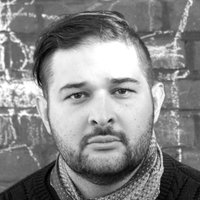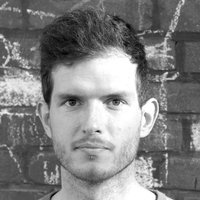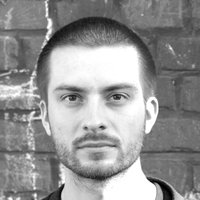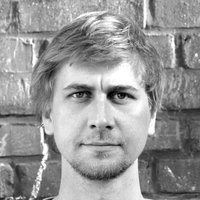about
English:
The band Elastic Social Structure was formed in 2015 in New York City and Dresden, Germany. Pianist Marius Moritz, percussionist Steffen Roth, saxophonist Jonathan Strauch and trombonist David Whitwell came together in New York City firstly to create a new anti xenophobia, and specifically anti PEGIDA album as a collaboration with the Underground Brass. (undergroundbrass.com). Until now the Band recorded two more albums in Berlin and New York and played several concerts in both countries.
Elastic Social Structure is a unique, bass-less instrumentation performing composed, semi-composed and improvised music, drawing from the members' vast experience in jazz, art, choral, free and 21st century musics. The goal of the quartet is to use modern music as a catalyst for discussion and enlightenment surrounding xenophobia in modern society- In Germany, looking at problems with PEGIDA and racist far right wing movements, and in the US, examining fear mongering in the media, racism in policing and in politics, and foreign policy based on war. The Quartet attempts to use programatic elements of their music to provide solace to victims, inspiration to activists, and education to racists.
Deutsch:
Elastic Social Structure gründete sich 2015 als transkontinentales Improvisationsbündnis. Saxophonist Jonathan Strauch, Posaunist David Whitwell, Pianist Marius Moritz und Schlagzeuger Steffen Roth fanden sich in New York City zusammen, um ein anti-xenophobes Album als Kollaboration mit dem New Yorker Underground Brass Trio (Dave Taylor, Jay Rozen, David Whitwell) aufzunehmen.
Seitdem hat das Quartett zwei weitere Alben aufgenommen sowie zahlreiche Konzerte in Deutschland sowie den USA gespielt.
Die Band, die sich wachsenden fremdenfeindlichen Tendenzen und dem Erstarken von Rechtspopulisten sowohl in Europa als auch in den U.S.A.ausgesetzt sieht, sucht das Verbindende der Musik als Anregung zum Gespräch. Mit seiner speziellen basslosen Besetzung spielt das Quartett sowohl komponierte als auch improvisierte Musik, gespeist aus den jahrelangen Erfahrungen ihrer Mitglieder mit Jazz, Neuer Musik und gegenwärtiger Improvisationsmusik.
DAVID
WHITWELL
David Whitwell has dedicated his career to music and to expanding the public perception of the trombone. He is principal trombonist of Ensemble Moto Perpetuo, New York Trombone Consort, Underground Brass, Curiosity Cabinet Ensemble, duo seXny (Sweden), the Social Structures (Germany) Eco Music Big Band, the Garden State Philharmonic and the Chappaqua Symphony. He has performed with the Britten-Pears Contemporary Ensemble, the SEM Ensemble and the Netherlands Symphony Orchestra.
As a soloist, he has premiered more than 50 new works for the trombone and been featured with Ensemble Moto Perpetuo, the MIVOS string quartet, as the winner of the Eisenberg-Freid concerto competition with the Manhattan School of Music Philharmonia, the New York Trombone Consort, the Low Brass Connection in the Netherlands, as winner of the Brooklyn College wind concerto competition with the Brooklyn College Wind Ensemble, as well as in master classes he has given across the U.S. and Europe. Each year David undertakes a solo tour of Europe, performing his own brand of narratively programmed recitals with organists, pianists, and various other instrumentalists and composers across Italy, Germany, Sweden, the UK and Ireland.
As a producer, he creates innovative narrative multimedia recitals; he has staged shows such as Sounds after the Oil War (Netherlands and Austria), Fear Is a Liar (New York), Howl, featuring a performance of the Allan Ginsberg poem of the same title, as well as the first performance of the Brahms Clarinet trio with a trombone. He is also the artistic director of the Eat Drink Listen Festival, curating collaborative performances between chefs, mixologists, and musicians.
photo by Dora Eichholtz
JONATHAN
STRAUCH
The Berlin based Saxophonist Jonathan Strauch, son of two musicians, was born in Weimar, Germany, in 1986. He started playing saxophone with the age of 10 years. Klaus Wegener was his first teacher, who accompanied him for many years. Jonathan concentrated on both Jazz and classical music and succeeded in several contests.
Later Jonathan studied with Dirk Engelhardt in Berlin. From 2009-2015 Jonathan studied Jazz Saxophone at the Hochschule für Musik Carl Maria von Weber in Dresden and at the Conservatoire National Superior in Paris. He got lessons from Finn Wiesner, Michael Arnold, Christian Patzer, Joachim Callejas and Francois Theberge. He is member in a couple of bands and ensembles, who focus on many different styles like free improvisation, hiphop, traditional jazz, modern jazz. From time to time he plays classical engagements. Jonathan Strauch was touring Russia, Czech Republic, Finnland, Canada, France and USA.
www.jonathan-strauch.com
photo by Dora Eichholtz
MARIUS
MORITZ
Marius Moritz, born in 1990 in Magdeburg (Germany), received classical piano lessons and began studying jazz at the age of 15. In 2008, he studied privately with Matthias Bätzel in Weimar, began jazz piano studies at the Hochschule für Musik Carl Maria Von Weber Dresden in 2010 and composition studies in 2015.
During his studies he had lessons with Thomas Zoller, Günter "Baby" Sommer, Till Bronner and others until 2017. In January 2014, his ensemble "Sonore Tapestries" won the eco Award of the BASF for their "Best Interpretation of Contemporary Music". Concerts with various bands lead him through Germany and France, Belgium, Switzerland, Poland and the Czech Republic. These experiences gave him the experience of both pop and rock music as well as contemporary jazz and free music. He has always explored the connection between musical languages and looks for interfaces within the entire history of music and between seemingly widely separated worlds of sound.
In addition to his work as a performer he teaches at the Konservatorium Georg Philipp Telemann in Magdeburg and the Hochschule für Musik Carl Maria Von Weber Dresden.
www.mariusmoritz.de
photo by Dora Eichholtz
STEFFEN
ROTH
The seemingly “repetitive” as well as the chaos in music, for him are some of the most important textures and serve as tools to provide both the audience as well as the musician with access to a new state of concentration. This also forms the principal element of his first solo tape album Kalbe/Milde (AnaOtt, ’17). The formations Julia Kadel Trio or spirale served him as experimental grounds to live communication on stage and to make it tangible. Structures like musical compositions, loose arrangements, visual impressions, the youngest but also the oldest experience – all of them have an inspirational effect on the player and are essential media for (his) expression.
www.steffenroth.de
photo by Dora Eichholtz



